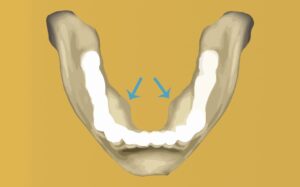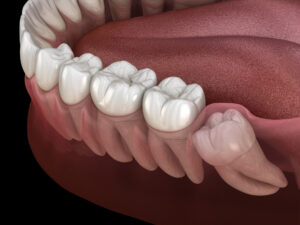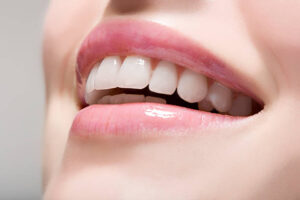Noticing tongue discoloration on one fine morning could upset anyone. But seeing the tongue changing color from natural light pink to black is not a matter of concern. As black tongue is a temporary oral condition which occurs due to overgrowth of bacteria or fungi or buildup of protein keratin on the surface of the tongue. Of course, you would want the tongue color to get back to normal as soon as possible, but you need to understand the possible causes for better treatment and prevent recurrence. In most cases black tongue with hairy appearance clears up in just a few days without any serious medication, but if it persists for long you should consult an oral care hygienist for proper check up as this could be due to some other underlying medical condition.
Causes of Black Tongue
The human tongue, a muscular organ covered with pink tissue called mucosa, plays a very important role in gastronomic and speech articulation functionalities. Hundreds of tiny bumps called papillae give the tongue its rough texture. When dead skin cells start building up on tips of papillae due to one reason or the other they start to appear longer and hairy, which get stained easily by bacteria or other coloring substances, thus making your tongue appear black or furry. Oral care experts classify black tongue in two types based on causing factors.
Black Hairy Tongue
A protein called keratin covers the surface of the tongue, which normally gets cleaned up with dead skin cells. If keratin starts accumulating on the surface of the tongue due to one reason or the other, it may change the appearance of the tongue, making it look black and hairy. Oral care hygienists call such conditions the black hairy tongue. Here are some of the factors that boost the chances of keratin buildup on the surface of the tongue:
Poor Oral Hygiene: A healthy regimen of brushing, flossing, and scrapping is a must to keep oral cavity clean and healthy. Even a minor negligence could lead to oral health challenges including black tongue. If you are not scraping your tongue regularly, dead skin cells will start accumulating making your tongue appear black.
Low Saliva Secretion: Optimum saliva secretion ensures smooth chewing and swallowing. If saliva production is affected due to low water intake or salivary gland malfunction dead skin cells might not get properly cleaned up, thus making your tongue appear black.
Liquid Diet: If you are on a liquid diet the natural scrapping stops. Chewing and swallowing hard foods keeps your tongue free of dead skin cells, which if not removed naturally or manually, will stain and make your tongue appear blackish.
Side Effect of Medication and Therapies: If your immune system is weak to some medical conditions then it may affect your oral health, thus causing black tongue. Medications like antibiotics might alter the delicate balance of bacteria in your oral space resulting in bacteria induced staining of papillae. Radiation therapy could also affect your salivary glands. Some gastrointestinal medications containing bismuth subsalicylate react with traces of sulfur in the mouth, which could make your tongue appear black.
Food Habit: If you are a heavy consumer of caffeinated drinks, black tea, tobacco products, then chances of black tongue increases manifold as these substances stain elongated papillae very easily.
Oxidizing Mouthwashes: Excessive use of harsh mouthwashes containing oxidizing agents, like peroxide, affects the bacterial ecosystem of your mouth, thus making you susceptible to black tongue development.
Pseudo-black Hairy Tongue
If the cause is bacteria, fungus, or other oral infections, then it is called pseudo-black hairy tongue.
Symptoms of Black Hairy Tongue
Black hairy tongue (BHT) is characterized by the appearance of abnormally elongated filiform papillae on the surface of the tongue. Although the etiology of BHT is not clear, studies suggest that it is multifactorial and more prevalent among heavy tobacco and caffeine users. Depending on the underlying cause, the symptoms of this acquired and benign condition could vary from person to person. Before your tongue color changes from light pink to black, brown, or white, you will notice the surface of the tongue turning hairy due to elongation of the papillae. In most cases, people do not experience any other symptoms, but in some cases, symptoms could be:
- Progressive discoloration from pink to white, yellow, brown, or black.
- Fuzzy or sticky feeling on the tongue surface
- Less than the optimum feeling of taste or metallic taste
- Bad breath
- Burning sensation
Clinical Diagnosis of Black Tongue
In most cases black tongue goes away without serious medication. If the condition sustains for long, you should visit your dentist or oral hygienist to seek proper treatment. A visual intraoral examination is more than enough in the majority of cases. However, if papillae elongation is abnormal, your dentist might recommend microscopic examination to know about the seriousness of filiform papillae elongation.
In some cases, especially when oral hygiene is in bad condition, the dentist might recommend cultures to rule out superimposed bacterial and fungal infection. Your doctor might ask about your recent medications and therapies as these could be a participating factor in the diagnosis of BHT.
When to Consult a Dentist?
Prevalence rate of black tongue is not alarmingly high like gum infections, but this condition creates panic as it affects facial aesthetics and confidence to smile freely. It is not a medical emergency, so you can wait for a few days before booking an appointment with your dentist or oral care hygienist. With home remedies and standard oral care practices symptoms of black fungus subsides in a few days. If the symptoms persist or worsens, you should get in touch with a doctor for proper diagnosis as the underlying factor could be something else other than bacterial, fungal, or other keratin accumulation on the tongue surface. You can seek dentist’s intervention if black tongue occurs with other symptoms like gum inflammation and pain, oral infection, tongue swelling, or damaged teeth.
Effective Treatments of Black Tongue
Black hairy tongue is a self-limiting condition which goes away easily comprehensive daily oral hygiene. The treatment begins with diagnosis and preventative strategies. Your doctor will physically examine your oral health and discuss medical history to establish causative relationship to potential environmental triggers. It is necessary to understand that black tongue disease is benign in nature so there is no need for aesthetic anxiety. The treatment involves discontinuation of dietary and medicinal substances and modifying predisposed factors like tobacco, coffee, and tea use.
The most important part of the treatment is maintaining good oral hygiene with proper brushing, flossing, and scraping. Depending on diagnosis and potential underlying cause, your dentist might recommend following treatments for black tongue:
Antibiotics Medication: If bacteria outgrowth is the cause of black tongue, the dentist might prescribe certain antibiotics to treat bacterial infection. However, you should share all possible details of recent antibiotics and other medications to prevent chances of side-effects. If black tongue is the result of antibiotic use then your doctor might switch medication.
Antifungal Medication: If black tongue is due to fungal infection, then your dentist might prescribe antifungal medications to treat the infection.
Other Medications: Some other successful medications prescribed by doctors are antimicrobial therapies, vitamin B complex, topical triamcinolone acetonide, salicylic acid, thymol, and topical or oral retinoids.
Surgical Treatment: If medications don’t show desirable effect, then your dentist might recommend surgical removal of elongated papillae by electrodessication or carbon dioxide laser. The clipping procedure is highly effective and safe, but black tongue might recur if the patient fails to follow standard oral hygiene practice.
Black Tongue Home Remedies
Black tongue is a self-limiting condition, but aesthetic concerns create unnecessary anxiety. Fortunately, this condition could be easily treated with some home remedies. Here are some of the effective home remedies for black tongue:
- Keep oral space, particularly tongue, clean by following regular brushing, flossing scrapping practices. It is good to brush after dinner to control bacterial outgrowth
- Use a tongue scraper to remove dead cells, bacteria, and other accumulations regularly
- Applying baking soda topically and rinsing with diluted hydrogen peroxide solution may ease symptoms and restore natural color of the tongue
- Rinsing with lukewarm salt water solution helps in improving oral cleanliness.
- Drink plenty of water to maintain optimum flow of saliva
- Avoid liquid diet and eating hard fruits and vegetables will help in removing deposits naturally
- In some cases consumption of probiotic and yogurt helps in improving the condition.
Takeaway
Any aberration in the dental, oral, or facial system can make anyone anxious. Black tongue can trigger the same reaction, but it is not a matter of grave concern as tongue discoloration normalizes in a few days with home remedies, oral care, and preventive measures. You can wait for a few days before consulting a dentist or oral hygienist, but if symptoms persist or worsens, you should ignore it for long as this could be a sign of other underlying medical conditions. Following healthy oral care practices involving brushing twice a day, flossing post meal, tongue scraping, and mouth rinsing with lukewarm salt water solution could help you get rid of black tongue and regain natural texture and light pink color in a few days.
SOURCES:
- Gurvits, Grigoriy E., and Amy Tan(2014). “Black hairy tongue syndrome.”
https://www.ncbi.nlm.nih.gov/pmc/articles/pmc4138463/ - Sarti, Geralyn M., et al(1990). “Black hairy tongue.”
https://europepmc.org/article/med/2190456 - Schlager, Emma, et al(2017). “Black hairy tongue: predisposing factors, diagnosis, and treatment.”
https://link.springer.com/content/pdf/10.1007/s40257-017-0268-y.pdf - Korber, Andreas, and Joachim Dissemond(2006). “Black hairy tongue.”
https://www.nejm.org/doi/pdf/10.1056/NEJMicm050117


